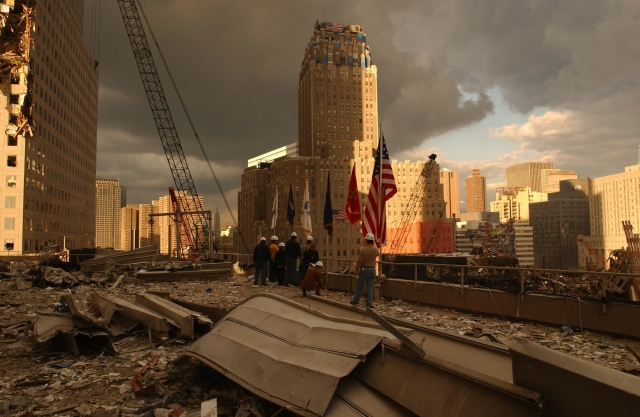The scale of terrorism in 2019
Despite international efforts, mankind is still far from finding a solution to reduce the threat of terrorism.

Corina Cristea, 27.09.2019, 14:00
People said the attacks in the US 18
years ago would change the world. Almost 3,000 people, including Romanians,
were killed after 19 members of the Al Qaeda network hijacked four passenger
planes on the 11th of September 2001. The attacks were considered
the bloodiest in history and the actions to combat terrorism are far from being
over. The attacks revealed vulnerabilities and changed international politics.
The Romanian army general Decebal Ilina looks at the circumstances in which the
attacks took place in an interview to Radio Romania:
Terrorism is based on the element
of surprise. The first line of defence in the fight against terrorism is
represented by the intelligence services and it turned out that the
intelligence services, although they had the data, were unable to verify and
interpret them. They also had many clues that could have led them to the idea
that an attack against the United States was being planned, but out of naiveté
and for other reasons, they did not act when they should have. The only good
thing that came out of this was that an international coalition of intelligence
services was created in order to combat terrorism, which means that information
is being exchanged and which is a very important thing because each can
contribute certain elements in establishing certain details that can combat
terrorist actions. But looking at how the United States acted, it proved
totally unprepared. From my point of view, history teaches nothing to no one,
but punishes those who haven’t learnt its lessons, in this case failing to take
into account the fact that so many acts of terrorism had taken place in the run
up to 9/11.
Defined as an unconventional combat
tactic, terrorism is based on causing a general state of panic and
intimidation, enhanced by the manipulative use of the media, in order to
achieve a goal that is otherwise hard to achieve through democratic and
conventional means. In the opinion of Decebal Ilina, for all the international
efforts to combat this scourge, including the creation of an anti-terror
international coalition led by the United States, mankind is still far from
finding a solution to reduce the threat of terrorism:
Terrorism has been around since
ancient times. Throughout this period, the international community has focused
on combating the effects of these cases of terrorism and less or not at all on
combating the causes. For people are not born terrorists, women don’t give
birth to terrorists, but to free children, to free human beings. These people
become terrorists because of conditions, the environment in which they live. I
believe this world could be much better if we replaced these bellicose actions,
war, with diplomacy. I believe president Trump is doing the right thing by
engaging in dialogue and considering the withdrawal of American troops from
most conflicts initiated by his predecessors.
Statistics showed a few years ago
that the number of terrorist attacks was on the rise, with most attacks taking
place in South-East Asia, the Middle East, North Africa and western Europe, in
France and Belgium. The Institute for Economics and Peace in Sydney centralised
the data for 2014, for example, which show that more than 32,000 people were
killed in attacks, 80% more than in the previous year. The countries most
affected by terrorism are Afghanistan, Iraq, Nigeria, Pakistan and Syria. More
than half of the victims are blamed on the Islamic State and the Boko Haram
terrorist networks, the latter being an African terrorist group that operates
mostly in Nigeria. Al Qaeda was also still a threat to be taken seriously. The
number of the victims of terrorism diminished, however, considerably in the
world in 2018.
In an interview to Deutsche Welle, terrorism
expert Matthew Henman explained the causes of this and why we shouldn’t be
overly optimistic. He said that between 2016 and 2017, the number of terrorist
attacks increased dramatically due to the clashes with the Islamic State over
control of territories in Iraq and Syria, in the cities of Mosul and Raqqa as
well as other regions. Matthew Henman says such fights over the control of
larger urban settlements were no longer waged in 2018. He believes the drop in
the number of attacks in Syria and Iraq were the most important factor
contributing to the diminution of terrorist attacks in the world. This is
explained first of all by the weakening of the Islamic State. It would be a
grave mistake, however, Henman says, to believe that the Islamic State has been
defeated. The threat still exists and the Islamic State terrorists are still
active, not only in Iraq and Syria, but also Afghanistan, West Africa, Yemen,
Somalia and South-East Asia. Only the threat posed by the Taliban is close to
that posed by the Islamic State. In 2018, the number of victims caused by these
extremists doubled compared with the previous year, and there were many victims
among the security forces in Afghanistan. Since the beginning of this year,
almost 200 people were killed and some 900 wounded in terrorist attacks in
Kabul alone.





























